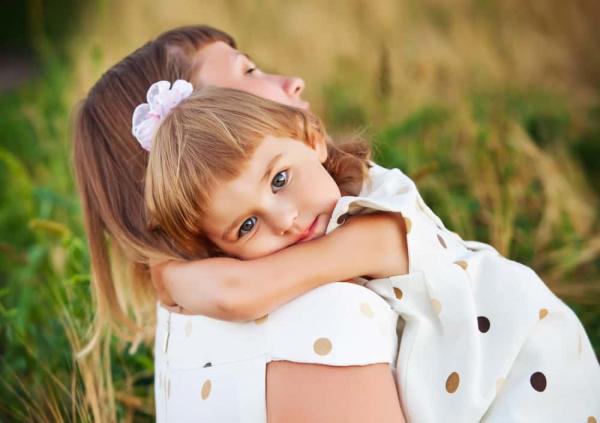
Parents tend to over-protect their children. They practice helicopter parenting, raising kids who can't light a fire, climb a tree or fill out a college application (all of which are useful skills, by the way). At the same time, parents can often ignore a few key areas where kids really do need some protection. Here are five ways you probably should be protecting your kids:
1. Protect her from uncertainty
One of the best ways to do this is to parent consistently. A child who knows where the boundaries are and what to expect if she crosses them, is a secure child. At any age, an unpredictable environment is highly stressful.
A child who is unsure of the rules doesn't have a solid plan for how to behave. A child who doesn't know the consequences of breaking the rules is both more likely to make mistakes, and more likely to stress about what will happen next. Protect your child from uncertainty by being as consistent as possible when it comes to parenting.
2. Protect her from peer pressure
Peer pressure is everywhere. It's unrealistic to think you can protect your child from it entirely, but you can put some things in place to help. One of these is to let her know she has a way out of any situation.
There's been a lot of social media attention about the X plan. It's a plan parents and kids put in place where the child can text a simple 'X' to a parent, at any time, to let their parents know they need a way out. The parent will call, tell the child there's been an emergency and they're coming to pick her up - no questions asked.
I had something similar growing up. When I was a teenager in the 80's, my parents made it clear that they would come and get me, anytime, from anywhere, for any reason. All I had to do was call (of course, back then I had to find a pay phone first).
Whatever your family decides to do, let your child know you will come get them from any situation, at any time. Your child then knows she'll never have to do anything she's uncomfortable with due to peer pressure.
3. Protect her from ignorance
A well-informed child is a child who understands how the world works, and how to make the most of it.
Encourage open discussion and critical thinking in your family. Expose your children to different points of view. Debate the big issues of the day. Listen to the news. Don't shy away from difficult or awkward questions, just answer them in an honest (and age-appropriate) way. Fill your house with books, music and art. Travel as much as you can. Help your child explore new ideas, opportunities and experiences.
4. Protect her from adult problems
There are some problems that adults deal with that kids probably shouldn't be exposed to. It's not appropriate to burden your child with your financial problems, your work stress or anything that is too personal or adult in nature.
Children are not stupid, of course. If Dad just lost his job, or there's been a huge unexpected expense, she probably knows that. Depending on her age, she'll have some idea of what it means for her family financially. She may even want to help.
It's not necessarily inappropriate to include children in a talk about tightening the family budget. Sometimes it's necessary to simply say, 'No, we don't have the money for that, right now'. However, your child doesn't need to know all about the stress, worry and conflict that comes with financial upset, and other adult problems.
5. Protect her from a lifetime of unhappiness
One way you can protect your child's future is to give her skills to make her happy for a lifetime.
Teach her healthy eating and good exercise habits. Teach her healthy coping strategies for when she's upset or stressed. Teach her to manage her finances well and to make good decisions. Teach her what a healthy relationship looks like and how to maintain one. Teach her to have a strong moral compass. Teach her to tend to her spiritual life and practice self-care.
Sometimes we're so focused on the little things we forget to step back and look at the big picture. The things we need to really pay attention to are often long-term, not the the day-to-day stresses and disappointments. Learn to let the little things go and realign your focus to protect your children from the things that really matter.

